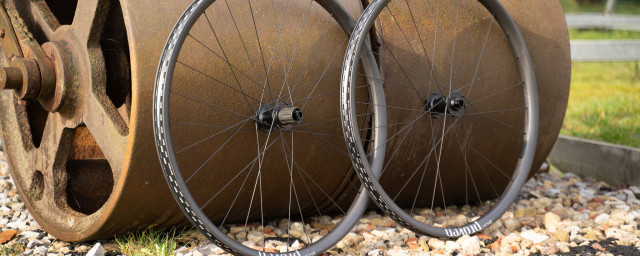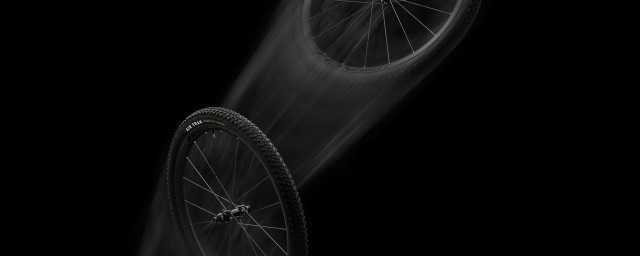Merida updates its One-Twenty trail mountain bike

It's been four years since we last saw an update to Merida's do-it-all trail bike but now, the new One-Twenty is finally here, and it has been completely overhauled. The new model gets the cool tech that was first introduced on Merida's new enduro and all-mountain bikes, bringing its geometry and componentry bang up to date. The best part, however, is the pricing which starts at £1,900. Here's everything you need to know.
- Can you use a road bike helmet for MTB and gravel riding?
- How to tweak your mountain bike's geometry - Suspension
- Should I turn my 29er into a mullet bike?
Merida's One-Twenty is a bike that is loved for its all-round capability and the latest iteration looks to build on what was already solid foundations. This time around, the brand has taken cues from its One-Forty and One-Sixty bikes as well as its Ninety-Six cross-country rig in order to blend lightning-fast climbing with confident descending.
With the new One-Twenty, Merida set out the aim of creating a bike that's simple, capable and affordable. As such, this 29er MTB is built around an alloy frame that gets a lot of the cool tech that we saw on its bigger siblings. But importantly, it gets a bump up in travel with 130mm of suspension at both ends.
This iteration of the bike has received a ground-up refresh which means it benefits from Merida's P-Flex design and Agilometer sizing. The former makes use of a flexible seat stay rather than a pivot or bearing that helps shed weight and completely negates the need for maintenance in this area. It also gets a horizontally mounted shock. A nice touch is the fact it can now fit two water bottles in the front triangle. There's also an accessory mount under the top tube and the bike uses Merida's headset-integrated internal cable routing which can be accessed under the bottom bracket.
Agilometer is Merida's latest sizing concept that goes in a similar direction to Specialized and Privateer, where it focuses more on a bike's desired handling, rather than the length of the rider's legs. So a rider that will usually choose a medium-sized bike could take advantage of the enhanced stability of a 'Long' sized One-Twenty as its stack and seat tube heights are very short. On the other hand, that same rider can go for a shorter and more agile frame size and still fit due to Merida's choice to kit longer dropper posts.
And with that sizing concept comes size-specific suspension tunes in order to offer the ideal (as said by Merida) ride character per frame. Though differing from the bigger travelled bikes, this one comes with a non-adjustable seat post with sizes XShort and Short getting a 150mm post, a Mid has 170mm and the Long, and Extra Long sizes are sorted with 200mm of drop.
In terms of geometry, the One-Twenty looks mighty different to its forebear. Reach has been stretched by 30mm up to 465mm (on a Mid-frame) and its head angle has been slackened to 66 degrees, a full 1.3-degree change. It's seat tube has been steepened by three degrees, to 78.5 degrees, only the chainstays remain unchanged, in order to keep the bike playful.
Merida has tuned the P-Flex system with 100% anti-squat at the sag point for efficient pedalling but it drops off quickly deeper into the travel to keep chain forces from interacting with suspension performance.
With the One-Sixty, Merida took that very same frame and dropped the travel, creating the One-Forty, now the same has been done with the One-Twenty, but this time, Merida has made a more affordable Ninety-Six cross-country bike. The Ninety-Six Lite gets 110mm of travel at both ends and steeper angles, making for a much more XC-focused ride.
As for builds, there are three available with the 700 topping the range. This bike benefits from a RockShox Pike Select fork and a Deluxe Select+ shock. There's an SRAM NX Eagle drivetrain, SRAM DB8 four-piston brakes, and Merida's own rims are laced to Novatech hubs. Those are then wrapped with Maxxis Forekaster tyres.
The 600 model looks to boost value even further, donning a Marzocchi Bomber Z2 fork with the same shock. Shifting is handled by a Shimano Deore 12-speed drivetrain and it's slowed with Deore brakes, using a four-piston caliper up front and a two-piston at the rear. This bike gets the same wheels and tyres but they're laced to Shimano hubs.
The base level, and most budget-friendly build in the range, is the 300 which gets an SR Suntour XCR34 fork and an Edge Plus shock from the same brand. It's driven by a Shimano CUES U6000 drivetrain and gets Shimano MT200 two-piston brakes. This one gets Merida rims laced to Shimano hubs and Maxxis Forekaster tyres.
But the best bit is that prices start at £1,900 and go up to £3,100.
We were lucky enough to be invited out to the EX Enduro in Minehead to ride the One-Twenty ahead of launch, so be sure to check out our Merida One-Twenty 700 first-ride review to get a taste of how it performs.















